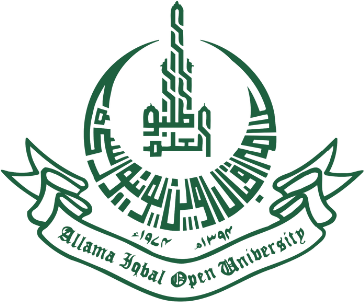Introduction
The ADE based B.Ed. (4Years) Secondary Teacher Education program addresses a critical need in the educational landscape and is specifically tailored for students entering in the 5th semester after completing their Associate Degree in Education (ADE). This program is strategically designed to build upon the foundational knowledge acquired during the ADE program while recognizing the pivotal role of secondary teachers in shaping the intellectual and personal growth of students. It ensures a cohesive educational journey that refines pedagogical skills, enhances subject matter expertise, and fosters a deeper understanding of educational theories by seamlessly transitioning students into the 5th semester of the existing B. Ed (4Years) Secondary Teacher Education program. This initiative not only streamlines the educational pathway for aspiring educators but also ensures that they enter the secondary education sector with a comprehensive and advanced skill set, ultimately contributing to the elevation of educational standards and the cultivation of a highly proficient teaching workforce.
Objectives:
- Provide prospective teachers with an opportunity to deepen their understanding of educational theories, instructional strategies, and pedagogical skills tailored for diverse secondary education settings, building upon the foundational knowledge acquired during their ADE program.
- Deepen subject-specific knowledge to ensure robust content delivery in secondary classrooms.
- Train teachers in the effective use of modern educational technologies to enhance student engagement and learning outcomes.
- Foster a commitment to ethical teaching practices and continual professional development to adapt to educational advancements.
- Provide real-world experiences through structured teaching practices to bridge theory with practice in actual classroom environments.
Eligibility Criteria
The minimum entry requirement for admission is an Associate Degree in Education (ADE) or equivalent.
Assessment Criteria
As per AIOU policy
Workshop
The workshop for each course will comprise of 12 hours, with 2 hours daily for 6 days as per AIOU policy.
Credit hours wise breakup
Total Credit Hours (CH): 69
- Major: 48 CH
- Specialization Courses (SC): 18 CH (In semesters 5,6,7&8)
- Content courses (Cc): 30 CH (In semesters 5,6&7)
- Interdisciplinary/allied Courses (IDC): 12 CH (In semesters 7&8)
- Capstone Project (CP): 3 CH (In semester 7)
- Field Experience/ Internship (FE/I): 6 CH (In semester 8)
- Non-Credited (NC): 2 courses (In semesters 5&6)
Duration
Medium of Instruction
Teaching Methodology
ODL
AIOU Credits Required
|
Course Code |
Course Titles |
Credit Hours |
|
8624 |
Secondary Education |
3(3+0) |
|
8653 |
Adolescent Psychology |
3(3+0) |
|
|
C1c1 |
3(3+0) |
|
|
C2c1 |
3(3+0) |
|
|
C1c2 |
3(3+0) |
|
|
C2c2 |
3(3+0) |
|
9487 |
Fahm-e- Quran (Tajwid, Translation and Tafsir) |
NC |
KEY: C1c1 = Content 1 course 1 C2c1 = Content 2 course 1, C1c2 = Content 1 course 2, C2c2 = Content 2 course 2
(These are content courses of two Content area clusters)
|
Course Code |
Course Titles |
Credit Hours |
|
6461 |
Educational Research & Statistics |
3(3+0) |
|
|
C1c3 |
3(3+0) |
|
|
C2c3 |
3(3+0) |
|
|
C1c4 |
3(3+0) |
|
|
C2c4 |
3(3+0) |
|
9488 |
Seerat-e-Tayyaba |
NC |
KEY: C1c3 = Content 1 Course 3, C2c3 = Content 2 Course 3, C1c4 = Content 1 Course 4, C2c4 = Content 2 Course 4
(These are content courses of two Content area clusters)
|
Course Code |
Course Titles |
Credit Hours |
|
|
Pedagogy I (Related to Content I from the chosen cluster) |
3(3+0) |
|
|
Pedagogy II (Related to Content 2 from the chosen cluster) |
3(3+0) |
|
8626 |
Teacher Education in Pakistan |
3(3+0) |
|
6413 |
Introduction to Inclusive Education |
3(3+0) |
|
6466 |
Comparative Education |
3(3+0) |
|
8342 |
Capstone project |
3(0+3) |
|
Course Code |
Course Titles |
Credit Hours |
|
8611 |
Critical Thinking & Reflective Practices |
3(3+0) |
|
8615 |
Management Strategies in Educational Institutions |
3(3+0) |
|
8654 |
Teaching and Learning Strategies |
3(3+0) |
|
6462 |
Test Development and Evaluation |
3(3+0) |
|
6995 |
Long Term Teaching Practice |
6(0+6) |
NOTE:
- The existing courses/clusters where relevant will be adopted/adapted as per requirement.
- The Faculty/Department may change the sequence or offer as per availability of courses.
Elective / Major Courses:
CONTENT CLUSTERS
- A Content cluster is a set of 5 courses having 4 content courses and a pedagogy. These 5 courses must be completed in the 5th, 6th, and 7th semester according to the scheme of studies.
- A student has to select any two Content clusters as (C1 & C2) in the 5th semester from the list of clusters given below. The Content clusters once chosen in the 5th semester as C1 & C2 cannot be changed in the 6th and 7th semester. Therefore, courses of the same clusters will continue in 6th and 7th semester.
|
Content Cluster Urdu |
Content Cluster English |
Content Cluster Pakistan Studies |
Content Cluster Islamic Studies |
Content Cluster Home Economics |
|
c1:8659 Urdu-I |
c1:6468 English I |
c1:8663 Geography of Pakistan-I |
c1:8667 Islamiat-I |
c1:6483 Home Economics I |
|
c2:8660 Pakistani Adab-I |
c2:6469 English II |
c2:8664 Geography of Pakistan-II |
c2:8669 Seerat-e-Tayyaba -I |
c2:6484 Home Economics II |
|
c3:8661 Tareekh-e-Adab-e-Urdu-I |
c3: 6470 English III |
c3:8665 Ideological Foundations of Pakistan |
c3:8668 Islamiat-II |
c3:6485 Home Economics III |
|
c4:8662 Tareekh-e-Adab-e-Urdu-II |
c4: 6471 English IV |
c4:8666 Foreign Policy of Pakistan-I |
c4:8670 Seerat-e-Tayyaba -II |
c4:6486 Home Economics IV |
|
Pedagogy 8639 Tadreeseat-e-Urdu |
Pedagogy 6493 Teaching of English
|
Pedagogy 8640 Teaching of Pakistan Studies |
Pedagogy 6497 Teaching of Islamic Studies |
Pedagogy 6496 Teaching of Home Economics
|
c1: course 1, c2: course 2, c3: course 3,c4: course 4
